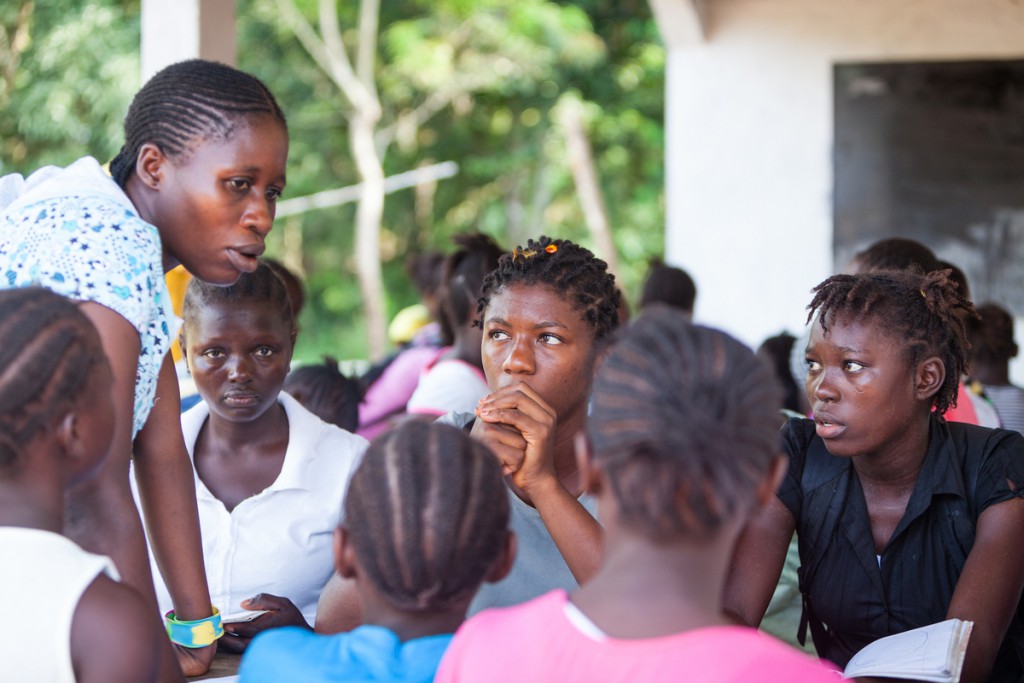What are the important skills, behaviours, and attitudes that students need to become contributing global citizens?

If by contributing global citizen we mean someone who sees themselves as having a part to play in deciding how the world works, we must surely be talking about moving on from the very individualistic approaches that our largely capitalist and materialistic world currently encourages. If the state of humanity is more important to us than our own personal state, or if we realise that the state of humanity has direct and inextricable impact on our own personal state, we then start to realise that we cannot logically push for a better personal situation by completely disregarding the needs of others.
In EducAid, we tell a story to illustrate the sort of world we are trying to build:
A man says to a group of children, ‘Whoever gets to that basket of fruit over there first can have the lot.’ The children look at each other, stand up, take each other by the hand and run over to share the basket of fruit. The man looks at them and asks, in confusion, ‘Why did the fastest, biggest, strongest not just come over and take the lot?’ They look at him in even greater confusion and answer, ‘But how could one person be happy when the others around them are sad?’
In a world where we fail to progress together, we have a world where the so called ‘developed’ end of society is not only dragged down by the needs of the weaker, least empowered but they also fail to benefit from the gifts, creativity, ideas and energies of this section of the world population too.
In a world governed by fear of each other, where we focus on differences instead of similarities, we need to look after ourselves and develop our indifference to the needs of others because we see them as other, as different, as not one of us. In contrast, where we have a world governed by hope, where we focus on our common humanity, home and shared future we can start to work collaboratively, open our eyes and minds to new possibilities, learn from each other and build a world where we are all winners, supporting each other’s progress.
What part can schools and educators play in developing these contributing global citizens? In EducAid, our vision is of a dignified and democratic Sierra Leone where poverty is eradicated by educated citizens. All of our programmes are therefore designed to achieve this vision.
One such programme is our Every Voice Counts programme which is refocusing all of the ways we work:
- Engaging students in a variety of extra-curricular activities, developing general knowledge and the ability to make informed decisions.
- Using a structure of tutor groups broken down into families in the schools enabling all children and staff to contribute ideas towards solving problems, improving functioning, planning events, identifying ways of enhancing performance, choosing different ways of showing concern and ensuring their colleagues’ safety and well-being:
- Participating in staff briefings and meetings.
- Reviewing learning materials and undertaking lesson observations.
- Decisions about spending.
- Participating in the reporting on the schools and programs to donors and partners.
Students and staff report significant changes in how they work together, feel about coming to school, tackle problems, look after one other, take responsibility for improving behaviour and academic progress, ensuring that all members of the community feel safe and have someone to talk to when they need to.
If all the members of our learning community, staff and students, know they have the right and responsibility to make their voices heard and to strive to make their immediate world better, they have started gaining the skills, behaviours and attitudes that will make it possible for them to be national and global contributors too.
If you would like to know more about EducAid’s work with vulnerable young Sierra Leoneans, please go to www.educaid.org.uk